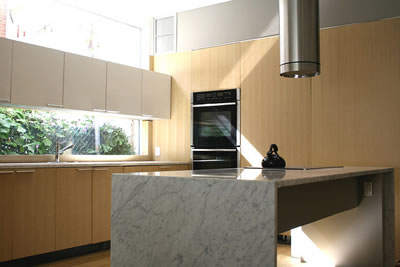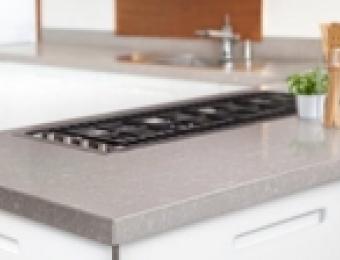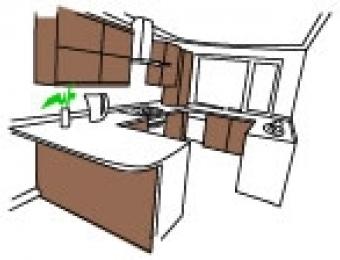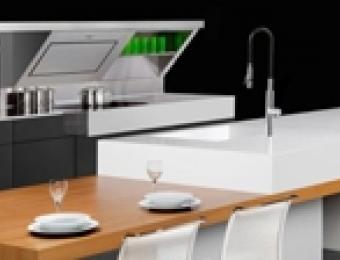
What is marble?
Most of us are familiar with marble - it's a type of luxurious natural stone that's been used in construction for millenia. The Taj Mahal is covered entirely with marble, and it was a popular building material in ancient Greece and Rome. Marble is a metamorphic rock, with very subtle colour variations that add to its appeal. The colour is determined by the way the marble softens with heat and pressure and then recrystallises.
Marble is considered to be the top of the range benchtop material, and as a consequence it's also the most expensive. Chinese or Indian marble will set you back approximately $70 per square metre, while the top of the line Italian marble can cost up to $200 per square metre. Locally mined marble is also available.
What are the properties of marble benchtops?
Marble is a strong and durable material. Marble is easy to maintain when it's properly sealed, however it must be sealed fairly often. Marble is porous - acidic substances like orange juice can eat away at the sealant and consequently leave staining if they're not quickly dealt with.
Like granite, the stone will expand and contract in extreme temperatures so it's also wise to avoid putting any extremely hot or cold products on the benchtop. As for cleaning, you should avoid standard household cleaners when cleaning marble benchtops, and just use soap and water or a small amount of bleach.
Like most other natural stone benchtop materials, marble isn't considered to be a sustainable choice. Marble needs to be cut out of the ground in solid chunks, which requires considerable energy and resources. It also requires a significant amount of energy to ship marble if it's being imported. Because it's heavy, cabinetry will need to be specially designed to suit. Likewise, marble benches will need to be installed by specialists to ensure that they're not damaged in the process.
|
Advantages
|
Disadvantages
|




